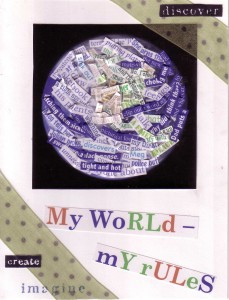Back in the early days of February, I wrote about how I began thinking about The Importance of Story. Story kept cropping up in all sorts of places, and it eventually got to the point where I knew I’d have to write about it to connect all the dots. So today I want to look at how we as humans are essentially made of story.
First off, stories help us remember or learn what is important–the things that help us survive. Don’t believe me? Think about the difference of having someone tell you not to drive a car while texting, and then watch this BBC film that tells the story of a fictional 17-year-old girl, Cassie Cowan (nickname Cow), who is distracted for a few seconds while driving with two friends. who texted while driving (Warning, it is very graphic) The story makes the lesson much easy to remember than just the warning.
Lisa Cron, author of Wired for Story, explains how story is uniquely human.
Story, as it turns out, was crucial to our evolution—more so than opposable thumbs. Opposable thumbs let us hang on; story told us what to hang on to. Story is what enabled us to imagine what might happen in the future, and so prepare for it—a feat no other species can lay claim to, opposable thumbs or not. Story is what makes us human, not just metaphorically but literally.as important as opposable thumbs. Thumbs help us hold on to things and story tells us what to hold on to.
Second, story is how we know who we are, and how we explain our behavior. In the book, Surviving Survival: The Art and Science of Resilience by Laurence Gonzales, the author quotes Tilmann Habermas, a psychologist at Goethe University in Frankfurt am Main, who wrote:
“memories are strung together into a ‘coherent, ongoing narrative’ to create what we know of as identity. From the age of about ten, the left hemisphere of the brain begins to create that narrative, arranging it in episodes and giving it coherence as adolescence ends and we enter our adult years.”
Gonzales also quotes Steven Pinker, a Harvard professor of psychology who refers to the left brain as a “baloney-generator” that helps us explain our behavior.
“Often those explanations have nothing to do with reality. They’re simply the stories that we tell ourselves to help us get around in the world. ‘The conscious mind,’ Pinker said, ‘is a spin doctor.’ LeDoux concurs: ‘People normally do all sorts of things for reasons they are not consciously aware of.’ And: ‘One of the main jobs of consciousness is to keep our life tied together into a coherent story.'”
Of course, Surviving Survival is a book about what happens in the brain when a person goes through a traumatic event. A trauma causes problems even after it ends because it has interrupted that narrative of life. But this brain science has relevance to all humans–partly because we all go through at least one traumatic event in our lives, and partly because this linking of memories, this created narrative defines our identity. Who we are is determined, in part, by the stories we tell ourselves.
Another interesting post on this topic is by Eva Grayzel.
And finally, story helps us understand the larger world/universe in a way that we can understand. I became interested in this idea of story when I was reading Terry Pratchett’s books this past summer. In his book A Hat Full of Sky, a Hiver (a creature who consumes the minds of those he takes over) comes after Tiffany. A one point Tiffany finds out that the Hiver is afraid of everything. Tiffany thinks she understands, but the Hiver thinks otherwise.
“Lucky humans, who can close your minds to the endless cold deeps of space! You have this thing you call…boredom? That is the rarest talent in the universe! We heard a song–it went ‘Twinkle twinkle little star….’ What power! What wondrous power! You can take a billion trillion tons of flaming matter, a furnace of unimaginable strength, and turn it into a little song for children! You build little worlds, little stories, little shells around your minds, and that keeps infinity at bay and allow you to wake up in the morning without screaming!”
In summary, story helps us learn or remember what is important, know who we are and explain our behavior, and make sense of the world in a way that doesn’t drive us mad.
So what does this mean for your writing, your characters?
1. What stories help your characters learn or remember important events?
2. What is the narrative your characters use to establish their identity and explain their behavior?
3. How do traumatic events break that narrative?
4. How does your character write/develop a new narrative?
5. What stories do your characters cling to in order to find meaning in the wider world? Or, for that matter, what happens when your character cannot find a story to help him/her understand the world in a way that keeps him/her sane? (Insane can be fun to write.)
Tune in later for How To Lie To Yourself and How To Lie To Others.




